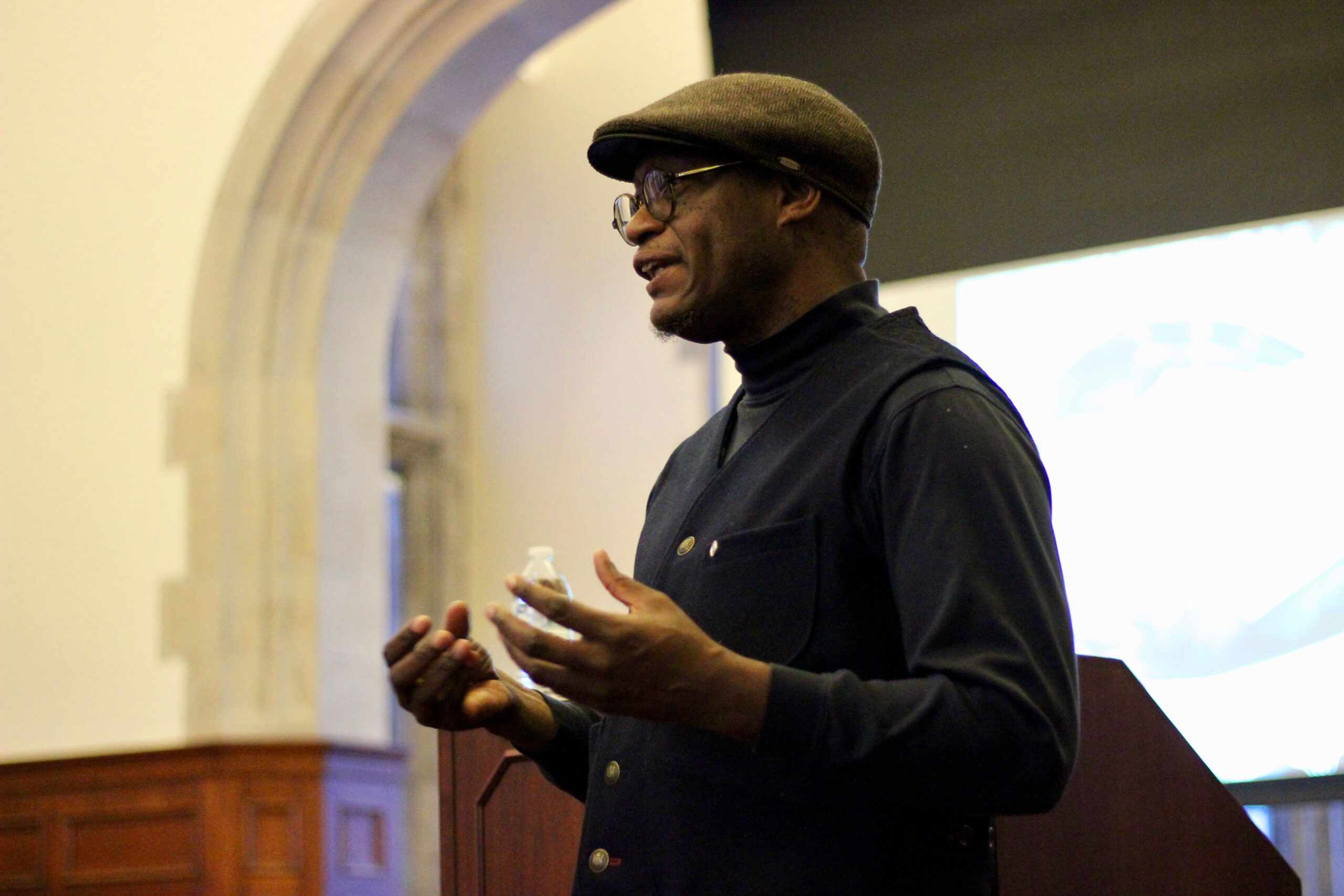Artist talk delves into Black history
February 14, 2020
 Kayla Snyder
Kayla SnyderUsing artwork to depict the transatlantic slave trade can both resurface trauma and make vivid the resistance of culture and sprituality. Portland-based artist Daniel Minter grapples with both of these realities, using physical forms and patterns of West African motifs as a means to connect the past and present. These connections were laid bare in his Monday lecture titled “Ripples of the Transatlantic Slave Trade,” attracting a crowd of students and local art connoisseurs alike.
Minter has a renowned career as an illustrator, with works that have been displayed around the country and the world. He is an instructor at the Maine College of Art and the founding director of the Maine Freedom Trails, a nonprofit which highlights the history of the Underground Railroad and abolitionist movement in Maine.
In his talk, Minter walked the audience through a sampling of his works, including the series “Water Trouble,” which depicts the repeated image of a boat traveling through the Middle Passage. Using West African symbolism, he connected his pieces to the flooding faced by Black communities in the aftermath of Hurricane Katrina.
“New Orleans is considered a spiritual center for African Americans,” Minter said. “Seeing how people in New Orleans were being treated after Katrina could only be answered by recalling the boat.”
Minter also took time to openly reflect on his childhood in southern Georgia. Despite having limited access to artistic resources in his segregated public school, Minter remembers seeing a print of Winslow Homer’s “The Gulf Stream” in his school library. In a similar vein to the “Water Trouble” series, Homer’s painting depicts a lone Black man on a rowboat in the middle of shark-infested seas, symbolizing racial tensions of the 19th century.
In his other artistic endeavors, Minter touches specifically on African American history in Maine. Along with founding the Portland Freedom Trail, he has conducted research on Malaga Island, the site of a post-Civil War interracial community whose residents were forcefully evicted in 1911. For the past 10 years, Minter has been committed to documenting the human stories of Malaga residents and their descendants.
“There seems to be so few African Americans in Maine, so I wanted to know the stories of the ones who were here,” he said. “It’s been stories that need to be told so that people get a full perspective … of what Maine is.”
Director of the Center for Multicultural Life Benjamin Harris organized Minter’s visit to campus. Harris reflected on the significance of Minter’s art in the College’s programming for Black History Month and Beyond.
“He talks about the transatlantic slave trade being a part of the underbelly of his work,” Harris said. “I thought that connected really closely with raising awareness about the historical aspect of the Black experience in America and in other parts of the world.”
Minter closed his talk by reflecting on the importance of art as a spiritual tool for the survival of African Americans in confronting both the weight of history and reality of today.
“I believe that artwork has a function,” Minter said. “We would not have survived the 500 years on this continent if we did not have artwork, if we did not have song, if we did not have dance. Those are things you can’t take away.”

Comments
Before submitting a comment, please review our comment policy. Some key points from the policy: